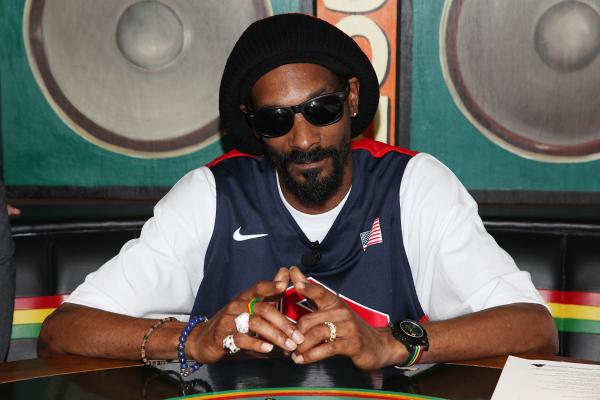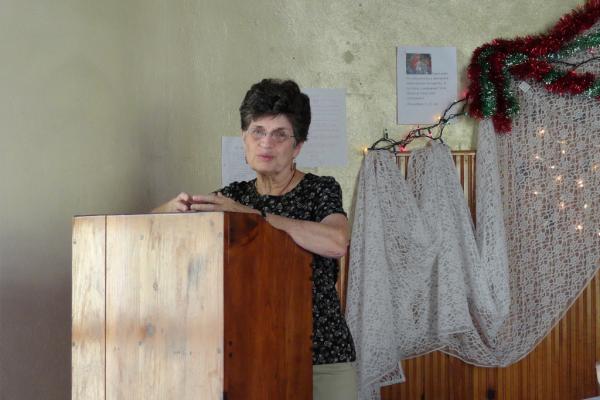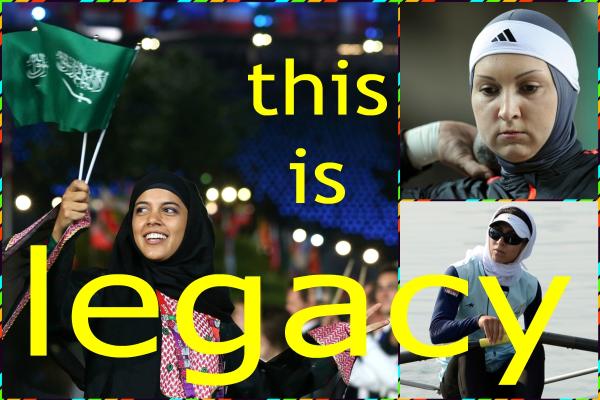Back in in 1993, Snoop Dogg scored a huge hit with the hip-hop anthem “What’s My Name?” Announcing his conversion to Rastafarianism on Monday, the rapper unveiled a new answer to that lyrical question.
“I want to bury Snoop Dogg and become Snoop Lion,” he said at a press conference.
So, did the onetime gangsta rapper have to drop the "d-o-double-g" when he became a Rasta? Yes, and no, said Ennis Edmonds, a scholar at Kenyon College and an expert on Rastafarianism.
The religious movement doesn’t require converts to change their names. But the faith was born in Jamaica, where calling someone a dog is deeply insulting, Edmonds said.
“Rastas would probably see calling yourself a dog as an indication of lack of self-knowledge,” Edmonds said.
A new poll shows that American Catholics tend to agree with their bishops’ concerns that religious liberties are at risk in the U.S.
Nevertheless, Catholics seem to be warming to President Obama, even as the bishops lambaste his administration in their fight to roll back a federal mandate that requires employers — with some exceptions — to cover birth control in their health plans.
The poll, released on Aug. 1 by the Pew Forum on Religion & Public Life as the contraception mandate took effect, found that among Catholics who are aware of the bishops' protests, 56 percent say they agree with the bishops’ concerns, as opposed to 36 percent who disagree.
Though she is at the center of one of the biggest crises in the Catholic Church today, Sister Pat Farrell is loath to talk about herself, and certainly not in any way that would make her a focus of the looming showdown between the Vatican and American nuns.
To be sure, Farrell has spoken publicly and with quiet clarity about why the organization she heads, the Leadership Conference of Women Religious, rejects Rome’s plans to take control of the umbrella group that represents most of the 57,000 nuns in the U.S.
In announcing its proposed takeover last April, the Vatican accused the nuns of embracing a “radical feminism” that questions church teachings and focuses too much on social justice causes. Farrell says the American sisters are simply doing what the gospel requires, often speaking on behalf of so many in the church who have no one else to advocate for them.
The high-profile confrontation will reach another crucial pass next week (Aug. 7-10) when LCWR members gather in St. Louis to develop a formal response to the Vatican’s plans. Options run the gamut from complying with all of Rome’s directives (unlikely) to decertifying the group and re-establishing it outside of the pope’s control (a possibility).
Using data from the Bureau of Investigative Journalism, the Guardian has created an interactive map of drone strikes in Pakistan, showing the location of known strikes. Each is marked with a red dot, clicking on it shows the date and number of casualties. According to the data, there have been more than 330 strikes, with estimates of up to 3,247 casualties — including up to 852 civilians. The map is a useful and educational tool.
Imagine a job where you sit in front of a computer monitor, toggling a joystick that controls a drone, watching a family 7,000 miles away in Afghanistan. You’re watching mothers and fathers with their children, children playing soccer; you watch them wake up in the morning, do their work, visit with their neighbors, and go to sleep at night.
Then one day when mom and the kids go off to market, the order comes to obliterate dad with a missile from high overhead. “Dad,” of course, is a “suspected militant,” which means he may or may not be a Taliban fighter, and that is all the justification needed to kill him.
I have so often pondered what might have happened if the media had covered more honestly the stifling of protest that Nakba Day in 1999 and as a result the local officials and the world community had heard the cry? Could the disaster have passed and peace with justice been advanced.
Today the media is much more candid. One wonders if we have received a rare gift of unaltered reality in this period of deepening crisis in the Holy Land and overheated atmosphere in the American presidential campaign. For this week it is being reported clearly that we have a presidential candidate, and probably millions of likeminded uninformed voters, who are apparently oblivious or uncaring about the explosive oppression of Palestinians.
Dozens of Muslim women are competing at the 2012 Summer Olympics in London — several of them as the very first female athletes chosen (and allowed) to represent their countries in the Olympic games.
These women are vanguards, shattering stereotypes, subverting cultural-religious mores, and creating a legacy that will benefit female Olympians of all creeds for years to come.
As has been widely reported and celebrated (in many quarters), Saudi Arabia sent two women athletes to represent the Arabic nation for the first time at the Olympic games — 16-year-old judoka (judo competitor) Wodjan Ali Seraj Abdulrahim Shahrkhani and 800-meter runner Sarah Attar, 19.
Attar, who is a California-born American but holds dual-citizenship in the Arabian kingdom because her father is Saudi, trains in San Diego, not far from Pepperdine University where she is a junior art major and also runs on the university's track team.
Shahrkhani, whose father is a judo coach and an international referee in the sport, won a dispute with Olympics officials earlier this week to be allowed to compete while wearing her hijab or traditional head covering worn by many observant Muslim women.
Saudi Arabia is not the only majority Muslim country sending its first women competitors to the Olympics. Brunei and Qatar also followed suit, sending five female athletes in total. Runner Maziah Mahusin is the lone woman on Brunei's three-person Olympic team. Qatar's four women Olympians are swimmer Nada Mohammed WS Arakji, sprinter Noor Hussain Al-Malki, table tennis player Aia Mohamed, and air rifle competitor Bahia Al-Hamad.
Both Mahusin and Al-Hamad were chosen as flag bearers for their nations at the opening ceremonies in London last week. Twelve majority Muslim countries — Tajikistan, Qatar, Morocco, Indonesia, Turkey, Jordan, Iraq, Djibouti, Comoros, Brunei, Bahrain, and Albania — chose women as flag bearers at the opening ceremonies that were viewed by an estimated 1 billion people worldwide.
Growing up, I heard things at camp and in youth group about how “the world” thought and acted one way, and how “we” were not like that. In fact the world, it seemed, was intent on unraveling everything I valued as good and true, leaving me with a smoldering pile of ideals and beliefs, all dead at the point of a secular sword. It was our job as Christians not only to defend against this frontal attack, but also to fight back in an effort to win souls for the Kingdom.
It was an epic battle, now in its beginning stages, but that would play out as depicted in the fantastical, horrifically violent pages within the Book of Revelation. The end is near; which side will you be on?
The Christianity of my youth was much like the Temple Mount in Jerusalem — a shining jewel high on a hill, beset on all sides by forces intent solely on its destruction. And our mission, as stewards of the faith, was to preserve and maintain the faith, protecting it at all costs. This, I would later learn, was the theological heart of what I now know as the Culture War. And some within the walls of the temple might argue I’ve abandoned the cause, or perhaps switched sides all together.
The Amish are by no means a perfect people, and there are dark sides to their history. Their example, however, does have much to teach us. How can we incorporate the best of Amish principles into our modern lives? To answer this, I did some reading. And some visiting. And some listening. I in no way pretend to be an expert on the Amish, but the more I read and visited and listened, the more I found to admire. The Amish are islands of sanity in a whirlpool of change.
Along the way, I discovered some Amish principles that we can all try to emulate. These principles (similar to the list that Wendell Berry laid out more than two decades ago in Home Economics) provide guidelines for a simpler, slower, more sustainable life. They offer me hope.
"Happy are those whose help is the God of Jacob, whose hope is in the Lord their God, who made heaven and earth, the sea, and all that is in them; who keeps faith for ever; who executes justice for the oppressed; who gives food to the hungry. The Lord sets the prisoners free." - Psalm 146:5-7







